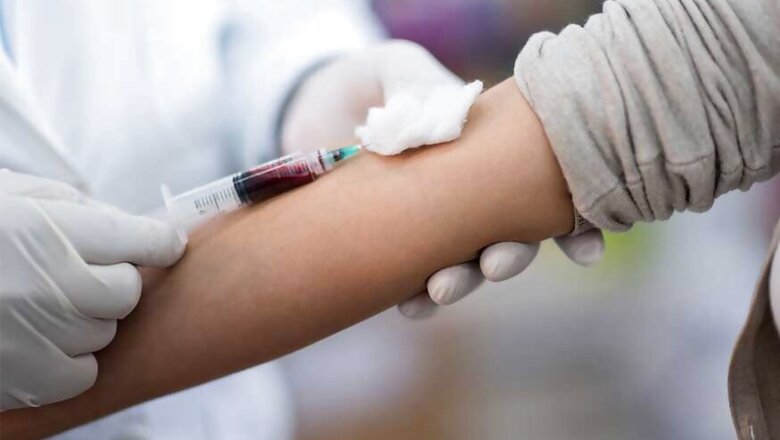
views
Chennai: A government AIDS control body in Tamil Nadu will propose that all future blood donors in the state record their biometric details so that issues related to fake credentials are addressed and timely medical care could be provided if they test HIV positive during the screening process.
The proposal by the Tamil Nadu State AIDS Control Society (TANSACS) comes close on the heels of a pregnant woman being transfused with HIV infected blood donated by a youth in Sivakasi government blood bank, which led to an outrage and raised questions over the present screening process.
The move is also aimed at ensuring timely initiation of antiretroviral therapy to donors who test positive for HIV when the blood is screened after donation at banks.
As many as 23 donors tested positive for HIV during 2015-18 but could not be informed of their status for a variety of reasons.
"We are going to propose to the government to have a programme to capture the biometrics of blood donors," Project Director, TANSACS, Dr K Senthil Raj told PTI.
Of the 23 donors, some were untraceable, a section of them did not cooperate and others had provided fake identity and false contact details, he said.
"In such cases, biometrics will help identify and bring them into the system by doing a test to confirm the presence of the virus through informed consent," he said.
After the test, if the results were positive again, counselling and later ART could be initiated. "Timely initiation of ART and strict adherence to the regimen is key to tackling HIV. Biometrics will not only help initiation of ART at the right time but will offer additional help to avoid transfusion of infected blood," he pointed out.
Some infected men donate blood under peer pressure just to avoid disclosure of their HIV+ status and hence provide false details during blood donation, he pointed out. "While some of them later inform us discreetly to not use their blood, others don't."
"HIV is only an infection and there is nothing to be ashamed of it. Unfortunately, since a section of society still cling to the stigma some tend to hide their positive status," he said.
Senthil Raj said recording biometric details of donors would be a "win-win" situation.
"The infected person will be brought under the system...get treatment and also receive moral support from other HIV positive persons who hold engaging outreach programmes through their networks."
"It will also help avoid blood donation from such people and even if it was done ignorantly, the blood can be detected with ease."
The TANSACS chief said capturing biometrics will provide a database of blood grouping of donors and their location. This will be of "great help to patients in time of emergency and also for the entire blood transfusion services in the state".
In the first phase, the biometrics recording facility is proposed to be launched in state-run blood banks, and later on it may be extended to the private sector with their cooperation.
In Tamil Nadu, there are 89 government blood banks, 193 in private and 9 in Central government-run institutions like the ESI Hospital.
About 8 lakh people donate blood every year and half of it is done at state-run hospitals, while the other half comes from the private sector and 12 lakh people are benefited.
Last month, a 19-year-old man's blood was wrongly labelled as HIV negative in a Sivakasi government blood bank and transfused to the 23-year old pregnant woman which led to an outrage in the state and beyond.
The donor, who was employed at a local fireworks unit in Sivakasi, had donated blood for a girl, his relative, who was seriously ill.
However, the blood-group did not match and it was kept in the blood bank. Subsequently, when he had gone for a health checkup at Madurai for an overseas job, he tested HIV positive.
Raj described it as an extremely unfortunate incident and said a government constituted panel was looking into the matter to determine as to how the lapse occurred.




















Comments
0 comment